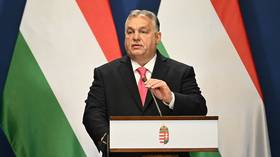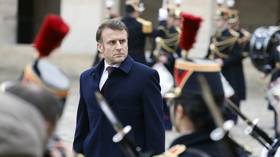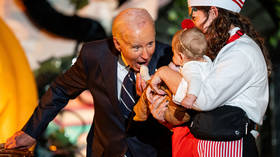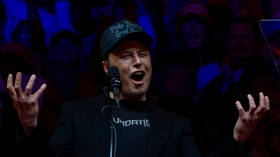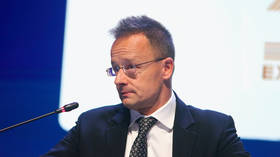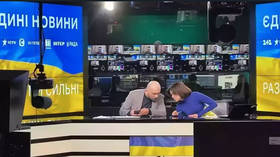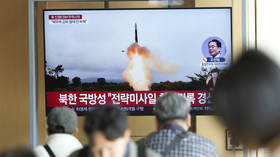The later the negotiations, the worse the result for Ukraine – Hungary
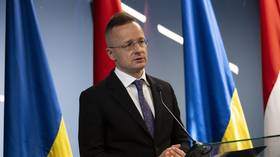
Ukraine will not be able to strengthen its negotiating position on the battlefield as some Western leaders think it will, and the longer peace talks are postponed, the worse the outcome will be for Kiev, Hungarian Foreign Minister Peter Szijjarto has warne.
Speaking to Radio Kossuth on Sunday, Szijjarto said that he has been “hearing for months” about how the Ukrainian military is gaining ground at the front “from which they can start negotiations from a better position.”
“In recent weeks, it has become clear that this scenario has failed, that time is on Russia’s side,” he continued, warning that “the later a ceasefire is called and negotiations begin, the worse it will be for Ukraine.”
From the outset of the conflict, US Secretary of State Antony Blinken said that Washington would continue to arm Kiev in order to “strengthen its hand to achieve a diplomatic solution on just terms at a negotiating table.” EU diplomats have made similar promises, generally followed by assurances that Ukraine alone would decide when to enter into talks with Russia.
Hungary has taken a different path, with Szijjarto and Prime Minister Viktor Orban calling since 2022 for a ceasefire and negotiations. “Almost nobody” believes that Ukraine will win, Orban told members of his Fidesz party last month. Several weeks before Ukraine lost the key Donbass stronghold of Avdeevka, the Hungarian leader stated that “time is on the side of the Russians, and the longer the war goes on, the more people will die, and the balance of power will not change in Ukraine’s favor.”
According to the latest figures from the Russian Defense Ministry, Ukraine has lost more than 400,000 service members – killed, wounded or missing – since the conflict began in February 2022. The Ukrainian military is also dealing with a dwindling pool of potential conscripts and shortages of Western weapons and ammunition. Western media outlets and politicians have warned that these twin problems may soon lead to a collapse all along the front.
“We have also made it clear that the longer this war lasts, the closer we get to the terrifying danger called the Third World War,” Szijjarto told Radio Kossuth.
The Hungarian diplomat condemned a recent remark by French President Emmanuel Macron, who said last Monday that he “cannot exclude” the deployment of NATO troops to Ukraine. While multiple NATO leaders and the alliance’s secretary general swiftly announced that no such deployment would take place, the idea found favor among some of the Baltic states, who have consistently called for more Western intervention.
“We in NATO made a decision about two years ago… [stating] that NATO is not a belligerent, and everything must be done to avoid a direct confrontation between NATO and Russia,” the bloc’s head Jens Stoltenberg explained.
“The Western politicians who talk about the need to send ground troops are certainly violating this joint NATO decision,” he continued. “Our position is clear and unambiguous: we will not send weapons or soldiers.”
Moscow has pointed out that it remains open to peace talks, but has received no “serious” proposals from Kiev or the West. Any potential deal, Kremlin spokesman Dmitry Peskov said last month, will have to take the “new reality” that Ukraine no longer owns Donetsk, Lugansk, Kherson, and Zaporozhye into account.
